E-cigarettes highlight the challenges of dealing with plastic waste
Lawmakers announced a new bill to tackle plastic pollution this week.
E-cigarettes and vapes have made the headlines amid national concerns about nicotine addiction among young people and health problems linked to black-market products. But among environmental advocates the increasingly popular products pose another challenge -- how to get rid of them after they're used.
E-cigarettes and pods for e-cigarettes or vapes can be both hazardous and electronic waste -- depending on the product -- and the plastic poses the same concerns as other plastic products that can add to overall waste and break down into microplastics that harm ocean ecosystems.
Nick Mallos, senior director of the Trash Free Seas program at Ocean Conservancy, said cigarette butts have been the most common item in beach and ocean cleanups but that the group's volunteers report seeing more and more e-cigarette products as they become more popular.
"Our hypothesis would be that -- as we see this shift to e-cigarettes and cartridges that in the coming years -- we unfortunately expect to see more and more of these products on the beaches, unless some intervention is made," Mallos told ABC News.
In 2017, 6.9 million adults reported using electronic tobacco products, according to the CDC, and more than 5 million middle and high school students say they have used them.
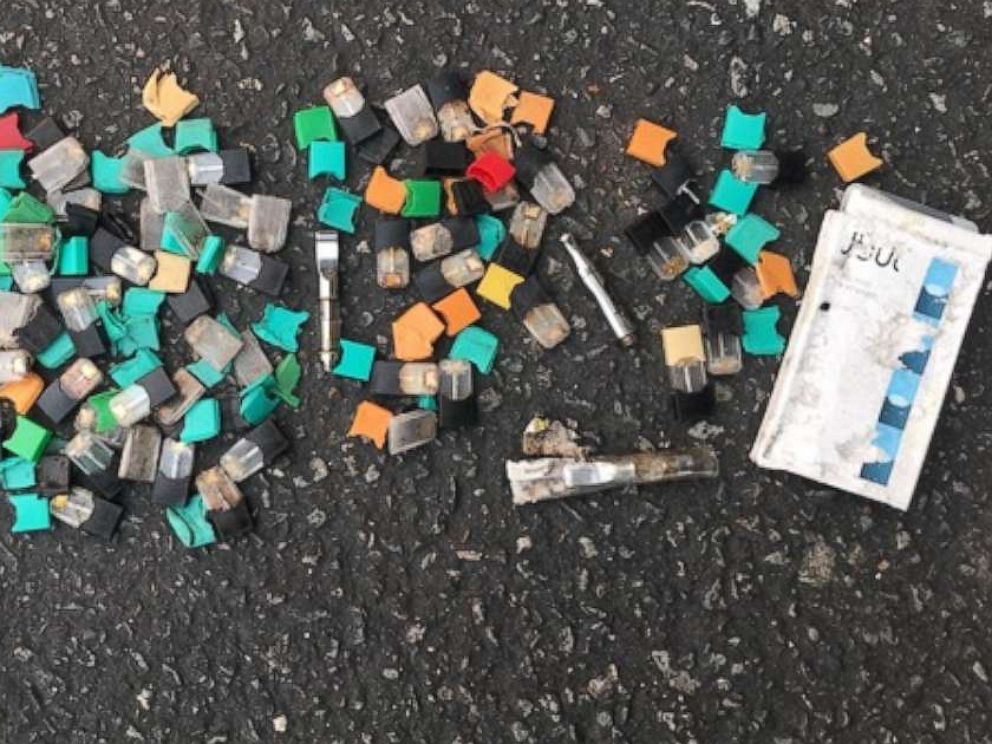
There's very little data available about e-cigarette waste, but Jeremiah Mock, an associate professor who researches tobacco use at the University of California, San Francisco, conducted a study surveying high schools in the San Francisco area and the kind of waste found around the building.
He said the nicotine residue, liquid and flavor in the cartridge or device could pose environmental concerns as well as the plastic itself as it degrades. The lithium ion batteries in electronics can also pose a fire risk in waste and recycling facilities, causing expensive damage and putting workers' safety at risk.
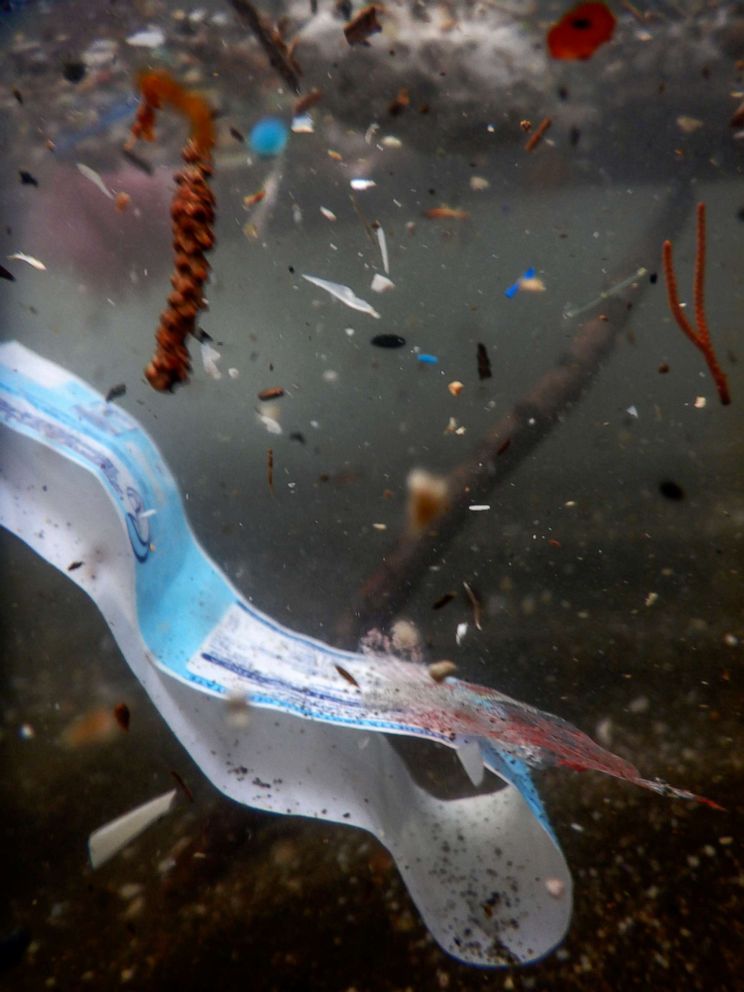
Mock also said he has found more disposable e-cigarette products like Puff Bar in recent surveys.
"Now we have the fourth generation of devices with built-in lithium ion batteries that, you know, people are told by the manufacturer is disposable, it's the thrown in the garbage or wherever. There's no information about how to dispose of them properly," Mock said.
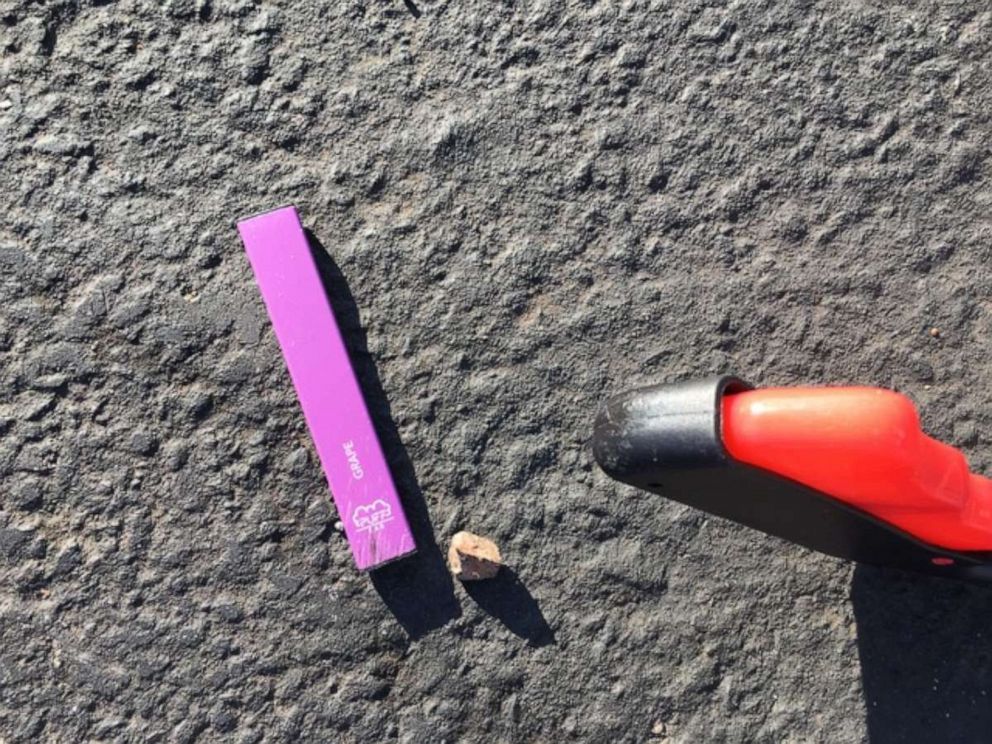
Puff Salts, which manufactures Puff Bar, and other companies that sell disposable cigarettes like NJoy and Fontem did not respond to a request for comment from ABC News.
Some producers include information on their website that direct users to dispose of the product as electronic recycling. Others have resources on how to recycle the products, such as Logic Vapes' "social responsibility" section, which directs customers to find a local battery recycling dropoff through the company Call2Recycle.
But a spokeswoman for Call2Recycle said that because e-cigarettes can also be rated hazardous many retailers that collect lithium batteries for recycling, like Best Buy or Home Depot, cannot collect those products unless the battery is separated from the rest of the device and they don't recommend users try to separate them at home. Instead she said the company recommends looking for a household waste dropoff in your area.
Another company, TerraCycle, launched a product last year to collect used e-cigarette products at retailers or public spaces and then ship them off for recycling, but a spokeswoman for the company said it has not yet been widely used.
Some advocates are pushing for the companies that manufacture these products to take on more responsibility for making sure consumers dispose of them properly.
Heidi Sanborn, executive director of the National Stewardship Action Council, has been pushing for a bill in California that would require producers to make their products more sustainable or launch programs where customers can mail back items like e-cigarette devices or pods to be recycled properly.
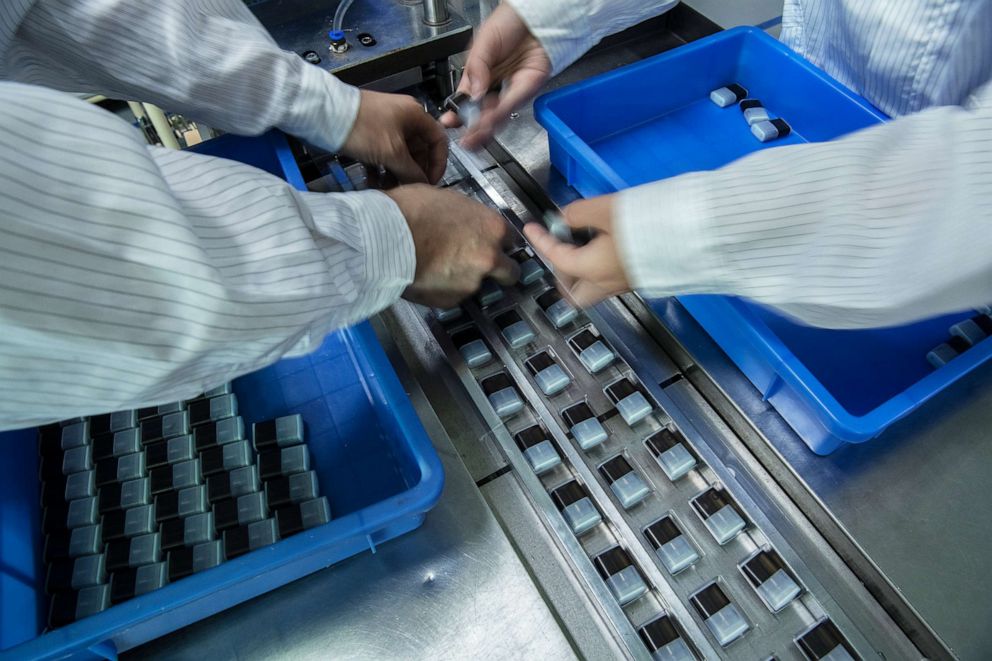
Sanborn said her group has been working with Juul, one of the most popular types of e-cigarette on the market. A Juul Labs spokesperson said the company has piloted a takeback program internally and plans to launch more recycling programs in the future, adding that they encourage customers to dispose of devices as electronic waste and not to litter used cartridges.
But Sanborn said products like e-cigarettes with multiple components are more complicated to dispose of and that going forward all companies should design products with a plan for how it can be disposed of or reused.
"That has to get back up to the front end. We've got to turn the spigot off," she told ABC News. "They need to be designing things that are more durable, repairable and reusable. And then, if you can't do any of those things anymore, there has to be a plan for end of life. We can't continue to do make, waste, dispose, make waste, dispose. There's only one planet."
The idea that producers should take more responsibility for their products has also taken hold on the national level. This week, Sen. Tom Udall, D-New Mexico, and Rep. Alan Lowenthal, D-Calif., introduced The Break Free From Plastic Pollution Act, which would put the cost of disposing of plastic products on manufacturers through user fees.
The bill outlined 10-cent refunds for returned containers and requirements for a certain amount of recycled materials instead of all-new plastic. The legislation would also temporarily pause any new plastics manufacturing facilities and phase out plastic products that can't be recycled, such as silverware, takeout containers and grocery bags.
The bill would also prompt agencies, including the Environmental Protection Agency, to research the environmental impacts of cigarette filters and e-cigarette parts to develop new regulations.
"Our bill is bold and our bill is comprehensive because the severity of this crisis demands it," Udall told reporters.
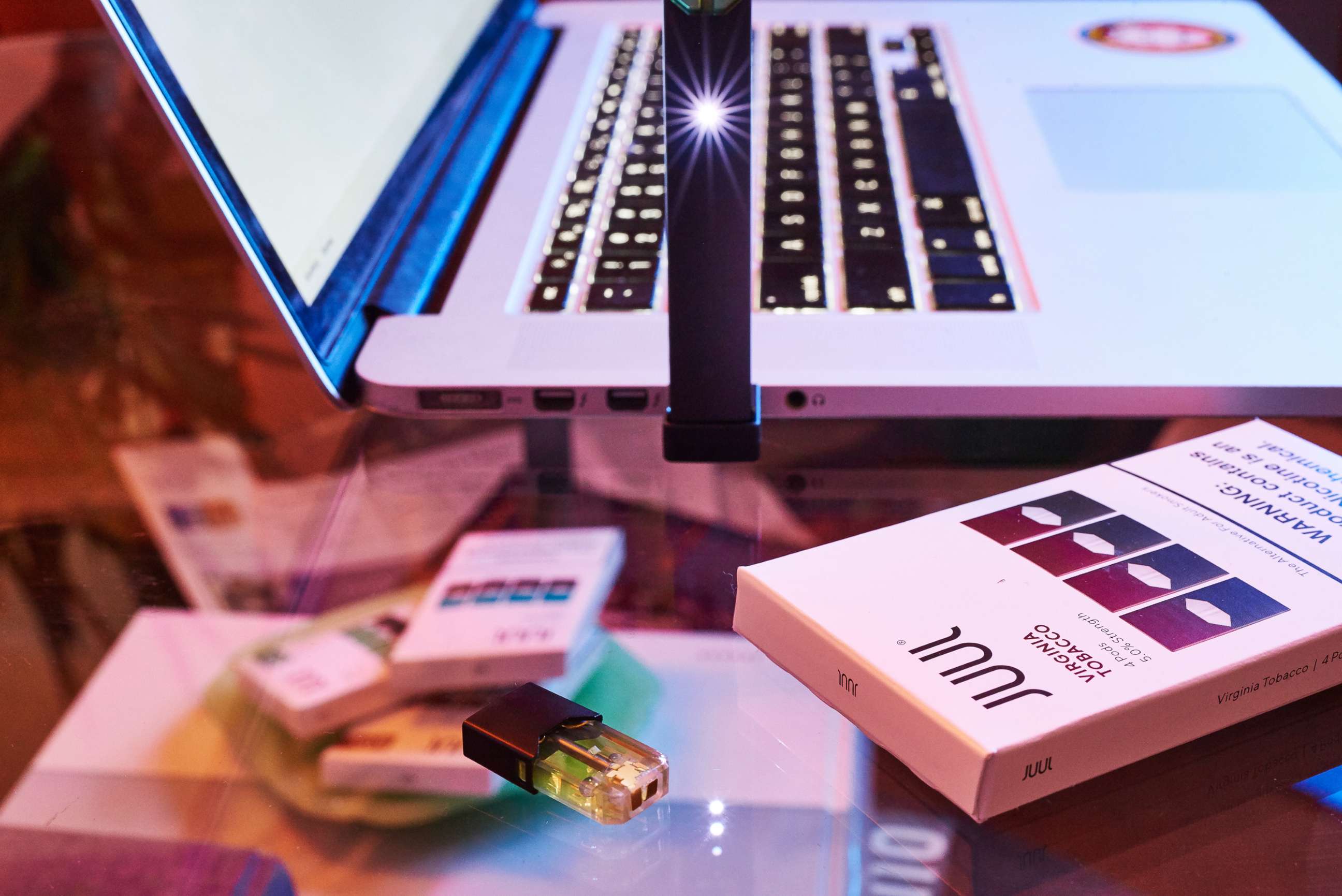
Mallos said that ultimately the message is to dispose of the plastic products you use responsibly, either by recycling or finding a garbage bin.
"It may seem like it's only one cigarette butt, it's only one little cartridge. But it matters, and when we think about a global population of 8 billion -- if everyone just had that mentality -- we very quickly are overwhelming our environment," he said.
E-cigarette companies will have to submit information on the environmental impact of their products as part of the applications due to the Food and Drug Administration in May.




